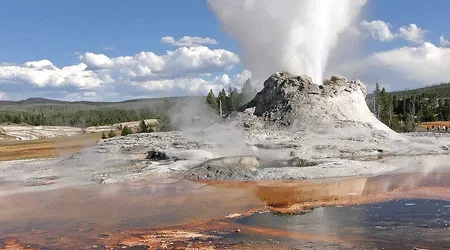
The Wyoming House of Representatives this week passed a bill reducing funding for critical access hospitals treating uninsured patients from $5 million — as a Senate bill allocated — to $1 million. To measure comes as Wyoming hospitals are struggling with uncompensated care while lawmakers balk at the idea of Medicaid expansion and other financial options.
State lawmakers recently rejected a bill to expand Medicaid eligibility for some 17,600 residents below the poverty line in a bill that would have created a kind of market-based Medicaid program using health savings accounts. In the process, Wyoming turned away $100 million in annual federal funding for hospitals who are increasingly dissatisfied with the traditional method of charity care allocations.
[Also: Which states earned the most Medicare bonuses?]
Under the original $5 million bill, the state’s 15 critical access hospitals would have been able to recoup 100 percent of their uncompensated care costs up to $250,000 annually.
Conservative House Republicans who spearheaded the cut argued that the case for supporting so much charity care funding wasn’t clear.
Supporters of the $5 million allocation, meanwhile, pitched it as a necessary short-term measure that would let lawmakers and state hospitals study the issue of uncompensated care and uninsurance to find a better solution to the problem.
“This is just a one-year program, and I think that what we’re doing is keeping the doors open for a year,” said Rep. Elaine Harvey, a Republican from the town of Lovell, told the Associated Press..
Follow Healthcare Finance on Twitter and LinkedIn.
The Wyoming Hospital Association has supported Medicaid eligibility under the Affordable Care Act, arguing that the 26 hospitals in the state are being forced to absorb millions of dollars a year in charity care for the uninsured. Most of the larger providers have at least 200 days of operating cash on hand, Harvey told the Associated Press.
“Thousands of working Wyoming residents cannot get health insurance today,” the association said in its January newsletter. “They are locked out. Cover them now, or pay more later.”
Twitter: @AnthonyBrino